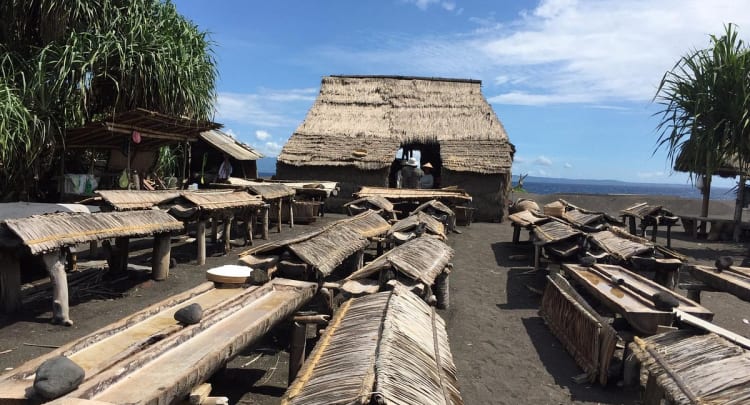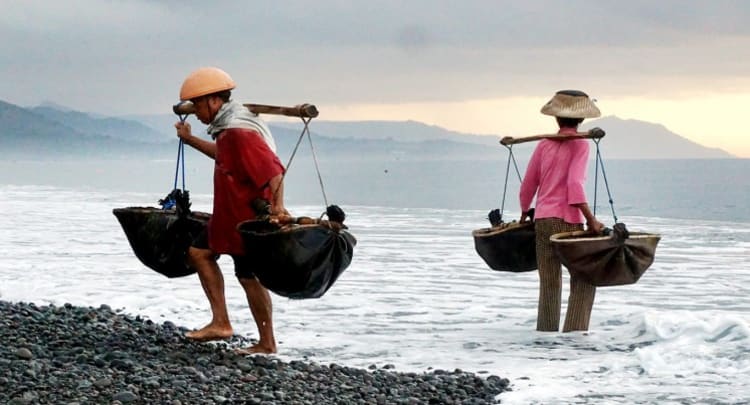The Bali Strait coastline in the Klungkung Regency of eastern Bali, Indonesia, cradles Kusamba Village Salt Farm. Renowned for its adherence to traditional salt-making techniques, this farm has been a cornerstone of the local culture and economy for generations.
The salt-making process in Kusamba Village relies on time-honored methods. The sun's rays naturally evaporate seawater in shallow ponds, leaving behind valuable salt crystals. Families have passed down the knowledge and skills required for this labor-intensive, intricate process over time.
Community engagement is integral to the salt farm's operation. Multiple families typically collaborate in managing and working the salt ponds, ensuring a collective effort for a successful harvest. The salt ponds create a captivating scene, with the stark white salt flats contrasting against the vivid blue sea, offering a visually striking landscape.
Visitors have the privilege of touring the salt farm, gaining insight into the traditional methods, and experiencing the local way of life. In some instances, visitors may also have the opportunity to purchase locally-produced salt and related products, such as different varieties of salt and salted fish.
Recent years have seen a heightened focus on sustainable salt production, with efforts aimed at balancing the economic benefits of salt farming with its impact on the surrounding environment. The salt-making process is heavily influenced by the weather and climate, with factors like the rainy season affecting the evaporation process and salt yields.
Moreover, Kusamba Village, like many villages in Bali, may host cultural festivals or ceremonies connected to salt production. These events hold religious or spiritual significance and provide a unique cultural experience for attendees.
It's worth noting that specific details about Kusamba Village Salt Farm may evolve. Therefore, for the most up-to-date information, it's advisable to consult local sources or tour guides when planning a visit.
























